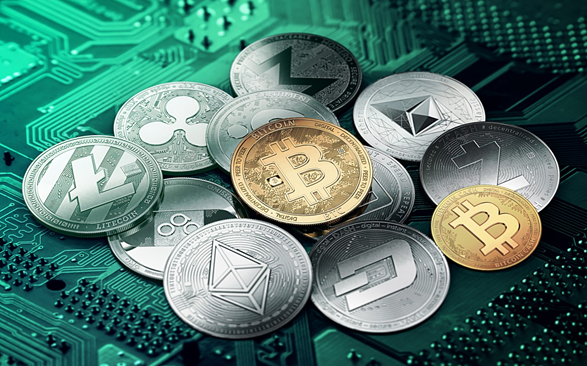The Nigerian Senate Committee on Capital Market has called on the Federal Government to regulate and formalize cryptocurrency trading in the country in order to tap into Nigeria’s booming digital asset economy.
Senator Osita Izunaso emphasized the urgency of embracing cryptocurrency trading, warning that continued inaction could cost Nigeria billions in potential revenue and global relevance. With Nigeria ranked second globally in cryptocurrency usage, the senator stressed that regulating cryptocurrency would bring numerous benefits to the country.
An Emerging Industry
Nigeria reportedly received about $59 billion in crypto transactions between July 2023 and June 2024, driven largely by economic hardship and the need for inflation hedging. Without a proper regulatory framework, the country risks being sidelined in the global crypto economy.
Izunaso stated, “If we regulate it, the money comes home. If we don’t, the blockchain doesn’t need us—they will keep operating anyway.” This suggests that regulation would generate revenue and ensure that the benefits of cryptocurrency trading are retained within the country.
The Investment and Securities Act 2025 has legalized cryptocurrency (digital assets) and placed it under the regulatory purview of the Securities and Exchange Commission (SEC). Digital assets are now officially recognized instruments in Nigeria’s financial ecosystem.
Last year, Quidax and Busha, two local digital asset exchanges, obtained provisional licenses from the SEC to facilitate trading in digital assets in the country. The licensing of other operators, though noticeably slow with the SEC’s Accelerated Regulatory Incubation Program (ARIP), is underway. According to the Director-General of the SEC, Dr Emomotimi Agama, at Crypto & DeFi Forum held in Lagos this week, this slowness is due to the vital need for the SEC to collaborate with co-regulators in the digital assets sector. In an earlier engagement with industry operators in April, Dr Agama mentioned that the National Security Adviser (NSA) is also involved in the screening process for applicants.
Read also: Nigeria’s SEC issues ‘Approvals-in-Principle’ to digital assets exchange firms.
A strong capital market is vital for achieving a $1 trillion economy.
Izunaso emphasized the importance of a strong capital market in achieving a $1 trillion economy, stating, “You cannot achieve a trillion-dollar economy without a strong capital market. That’s where the money will come from.” The new law is expected to revolutionize the SEC and provide new opportunities and protections for investors.
The senator warned Nigerians to steer clear of Ponzi schemes, describing them as “fraudulent traps that always end in tears.” The Investment and Securities Act 2025 prescribes severe penalties for financial crimes, including a 20-year jail term for Ponzi operators.
Potential Confusion on the Senate’s Stance
The senator’s stance may be confusing, given that the SEC already has a regulatory framework for digital assets in the Nigeria capital market. The Central Bank of Nigeria (CBN) also issued guidelines in December 2023, recognizing virtual assets and deferring regulation to the SEC.
This raises questions about what the senator means by “regulation.” Is he advocating for an overarching legislation on cryptocurrency that fully permits trading using bank accounts? Further clarification is needed to understand the senator’s vision.
Some possible dimensions of regulation that the senator might be advocating for include:
- Overarching Legislation: A comprehensive law that provides clear guidelines for cryptocurrency trading, including the use of bank accounts.
- CBN-SEC Collaboration: Enhanced collaboration between the CBN and SEC to ensure a cohesive regulatory approach to cryptocurrency.
Read also: SEC Nigeria finally issues framework for VASPs.
Cryptocurrency Regulation and Formalization of Cryptocurrency Trading as Related but Distinct Concepts
While Senator Izunaso’s call may come across as a little confusing given that Nigeria already regulates cryptocurrencies, perhaps the Senator’s point is that while Nigeria now regulates cryptocurrencies, the country is yet to formalize cryptocurrency trading. What’s the difference between these two related but distinct concepts?
Regulating Cryptocurrencies:
- Oversight and Supervision: Regulation involves establishing rules and guidelines for cryptocurrency transactions, exchanges, and service providers.
- Compliance and Enforcement: Regulatory bodies ensure compliance with laws, anti-money laundering (AML), and know-your-customer (KYC) requirements.
- Consumer Protection: Regulation aims to protect consumers from scams, fraud, and market volatility.
- Market Integrity: Regulation promotes fair market practices, transparency, and stability.
The above is what Nigerian regulators have essentially been doing. But concerning formalizing cryptocurrency trading, there are many gaps in this regard.
Formalizing Cryptocurrency Trading:
- Legislative Recognition: Formalization involves recognizing cryptocurrencies as a legitimate form of currency or asset through legislation. Indeed, the closest Nigeria has gotten is to recognize “digital assets” as security in the latest Investments and Securities Act, 2025. Similarly, the Finance Act 2023 amended the Capital Gains Tax Act to recognize “digital assets” as assets that are subject to tax. No legislation comes close to embracing or defining “cryptocurrencies”, especially as a currency—a medium of exchange, a store of value, and a unit of account.
- Integration into Financial System: Formalization enables cryptocurrencies to be integrated into the traditional financial system, allowing for use in everyday transactions. Many merchants in Nigeria, including ecommerce platforms, remain skeptical about cryptocurrencies as a medium of payments for goods and services in the country, a situation that should not be so since a medium of exchange is not necessarily a legal tender.
- Banking and Payment Systems: Formalization may involve allowing banks and payment systems to handle cryptocurrency transactions, to the extent that bank customers can be confident about transacting in cryptocurrencies in the country. Here, individuals and entities can start using “crypto”, “bitcoin”, and other similar descriptions in the remarks section of their bank transfers without any fear of being flagged.
- Taxation and Revenue: Formalization can lead to taxation of cryptocurrency transactions and revenue generation for governments. Till date, no guidelines have been issued by relevant tax authorities on cryptocurrency tax collection and remittance in the country. But some tax enforcements against crypto-related platforms have been activated, often resulting in uncertainty and confusion.
- Blacklisted Crypto Websites: Since sometime in March 2023, a number of crypto websites remain blacklisted in Nigeria’s cyberspace, preventing Nigerian users from being able to access and trade cryptocurrencies on these platforms. Considering that Nigeria has made some significant strides in cryptocurrency regulation more recently, one would have expected a review of that action by the Federal Government, at least to signal a green light to operators that Nigeria is truly ready for business.
Read also: Crypto: Nigeria is ready for business, says SEC Director-General
Key Differences between Cryptocurrency Regulation and Cryptocurrency Trading Formalization
- Scope: Regulation focuses on oversight and compliance, while formalization involves legislative recognition and integration into the financial system.
- Purpose: Regulation aims to protect consumers and maintain market integrity, while formalization seeks to legitimize cryptocurrencies and promote their use.
- Impact: Regulation can provide clarity and stability, while formalization can increase adoption and mainstream acceptance.
Is it the gaps caused by the key differences above that mainstream acceptance of cryptocurrencies appear to be a major challenge in Nigeria presently?
Read also: Again, SEC warns Nigerians against CBEX; declares it an illegal operator
Discover more from Crypto Asset Buyer
Subscribe to get the latest posts sent to your email.




